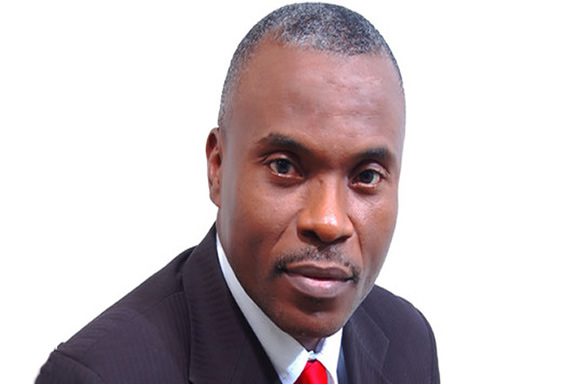In the past month, Nigeria's currency, the naira, has been recovering quickly. It has become the best-performing currency in the world, going from about 1 USD to N1,900 to about 1 USD to N1,000. This has made people feel more relaxed.
The naira's value dropped significantly starting in May 2023 when President Bola Tinubu took office. In 2015, when Muhammadu Buhari became president, one dollar was worth about N220 in the parallel market. By the end of his eight years in office in 2023, the exchange rate had dropped to about N750 for a dollar. Just ten months into Tinubu's presidency, the naira had fallen to about N1,900 – over 150 per cent depreciation.
When Tinubu's administration began, it made two decisions that it believed were practical and transformative. One decision was to remove fuel subsidy, and the other was to allow the naira to fluctuate based on market forces. These actions had a significant negative impact on the Nigerian economy. Petrol prices went up dramatically from N185 per litre to about N650, and the naira began to depreciate rapidly. This was very unsettling for many Nigerians, as most people's salaries or earnings did not change.
Although the naira has not fully recovered to its value when Tinubu took office last year, its recent improvement has been reassuring. The rapid depreciation had caused fear and uncertainty among Nigerians and foreign investors. There was concern that the naira could drop as low as N5,000 to a dollar before the end of Tinubu's four-year term in 2027. The recent appreciation of the naira has provided some relief.
However, the strengthening of the naira has coincided with the reduction of Nigeria's foreign reserves. As of April 17, 2024, Nigeria's foreign exchange reserves had decreased by a total of $2.33 billion in 31 days, dropping from $34.45 billion on March 18, 2024 to $32.12 billion on April 17, 2024. This was the lowest the reserves had been in seven years, since September 20, 2017, when it stood at $32.08 billion.
This decline began in mid-March. Before that, the reserves had increased by $1.28 billion between February 5 and March 18, 2024. But since March 18, the foreign reserves have been decreasing. For example, between March 18 and March 19, the reserves decreased from $34.45 billion to $34.39 billion. The next day, it fell to $34.32 billion. Two days later, it dropped even further to $34.26 billion. The decrease was so consistent that in 18 days, the foreign exchange reserves had decreased by $1.02 billion. Within a month, that amount had nearly doubled to $2.33 billion.
By chance, the reduction of the country's foreign currency reserves began shortly after the Central Bank of Nigeria announced it would start selling foreign currency to Bureau de Change operators. The CBN had stopped selling foreign currency to BDCs on July 27, 2021. However, on February 27 of this year, the CBN stated it would sell $20,000 of foreign currency to each eligible BDC in Nigeria to address issues in the retail segment of the foreign exchange market and narrow the exchange rate gap.
The CBN sold the foreign currency to the BDCs at a rate of N1,301 per dollar, with the condition that all BDCs could sell to end-users at a maximum margin of one per cent above the purchase rate from CBN.
On March 26, the CBN sold a second portion of foreign currency to the BDCs, allotting $10,000 per BDC at N1,251 per dollar. On April 8, the CBN allocated $10,000 to each eligible BDC at the rate of N1,101 for each dollar.
The connection between the time the naira started to strengthen and the decrease in the nation's foreign currency reserves caused concerns that money was being drawn from the reserves and sold to the BDCs at a lower rate. This was viewed as a way of taking from one place to give to another. If Nigeria's foreign reserves had to dwindle by over $2 billion in one month to achieve the news that Nigeria's currency performed well, how would it benefit Nigeria in the long term? How long will the CBN continue to use the foreign reserves to support the naira? How is it different from providing subsidies to importers of refined petrol, resulting in substantial national debts? What will happen if the CBN stops? Will the naira not start weakening again? How will the billions of dollars lost to the BDCs be recovered?
The CBN Governor, Yemi Cardoso, refuted the accusation that the foreign reserves were being depleted by a "currency subsidy." He explained that the decrease in the nation's reserves was due to debt repayments and other standard financial obligations.
National currencies typically strengthen when there are positive developments such as increased production, higher exports, decreased inflation, and reduced interest rates. However, none of these occurred in Nigeria, causing some people to doubt the explanation provided by the CBN Governor.
Every loyal Nigerian hopes for the strengthening of the Nigerian economy, leading to a stronger naira, more job opportunities, reduced crime, and so on. However, it would be better if this happens through a transparent and easily understandable method, especially one that is related to a positive change in productivity. This kind of change is sustainable and can create positive effects in the nation.
The apparently positive news about the naira is not reassuring to most Nigerians. There is a fear that the situation is like someone using their hand to block a water channel. The flow of water may stop temporarily, but once the hand is removed, the water will come bursting through.
Efforts should be made to prevent the naira from losing value quickly by taking long-term measures. Increasing production and exports is a reliable way to achieve this. Other factors include political stability, economic stability, security, and tourism. The Federal Government should consider these steps for a lasting solution to the naira's value.
- X: @BrandAzuka



